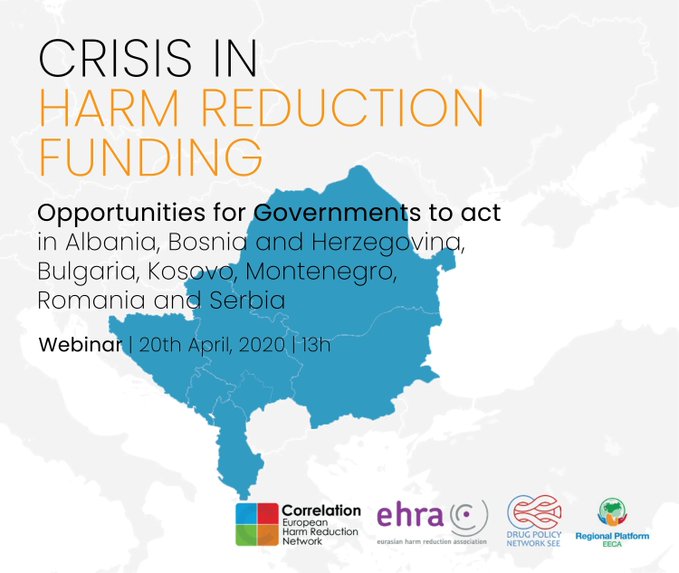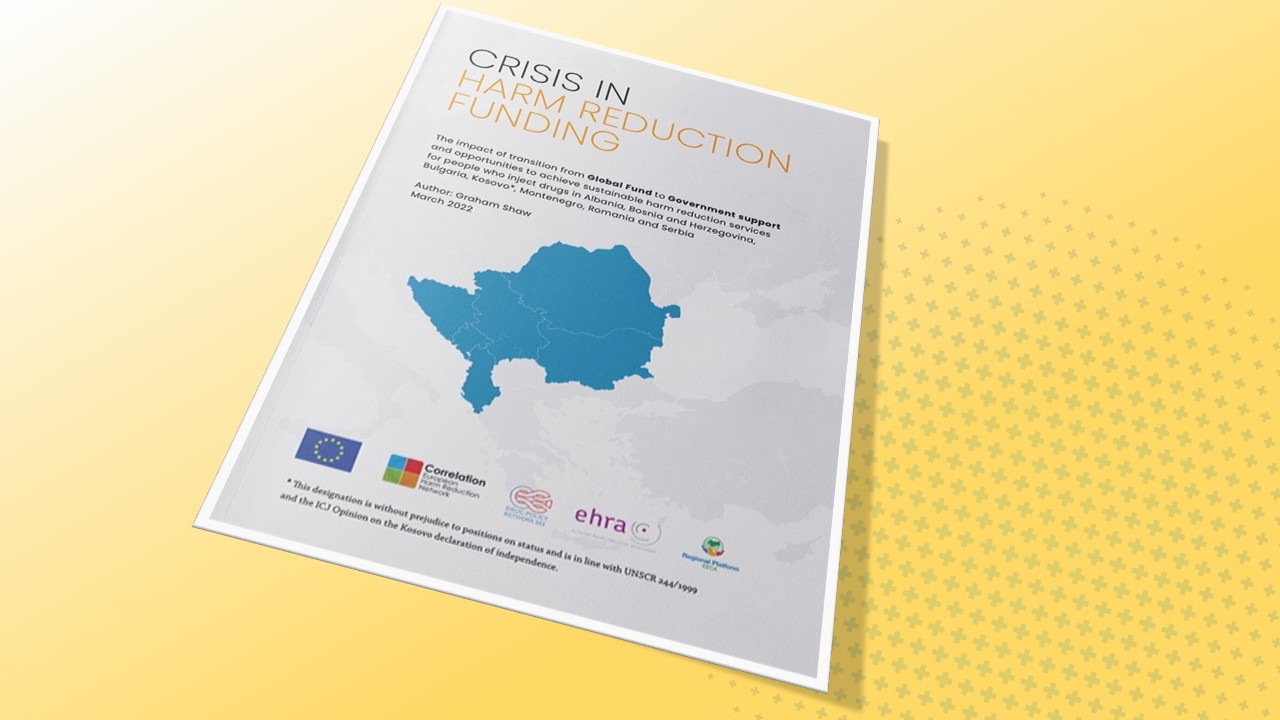 On the 20th of April 2022, the three Networks organized a Webinar on Harm reduction crisis in South East Europe. During this event, national decision-makers from the region, researchers, harm reduction service providers, community and civil society representatives came together to present and discuss the key findings of the research activities.
On the 20th of April 2022, the three Networks organized a Webinar on Harm reduction crisis in South East Europe. During this event, national decision-makers from the region, researchers, harm reduction service providers, community and civil society representatives came together to present and discuss the key findings of the research activities.
Correlation – European Harm Reduction Network, the Eurasian Harm Reduction Association and the Drug Policy Network of South-Eastern Europe have been working together to advocate for addressing the harm reduction crisis in South East Europe since 2019.
Countries of South-Eastern Europe and the Balkans, including Albania, Bosnia and Herzegovina, Bulgaria, Kosovo, Montenegro, Romania and Serbia, are experiencing relatively high levels of HIV and HVC infection among people who inject drugs. However, due to limited domestic resources and the gradual withdrawal of the Global Fund from the region, the governments of these countries are facing a lack of resources to continue the long-term funding of comprehensive harm reduction programmes.
 During this webinar, C-EHRN, EHRA and DPNSE present the research Crisis in harm reduction funding: The impact of transition from Global Fund to Government support and opportunities to achieve sustainable harm reduction services for people who inject drugs in Albania, Bosnia and Herzegovina, Bulgaria, Kosovo*, Montenegro, Romania and Serbia they have conducted in the area and discuss its key findings, which include among others:
During this webinar, C-EHRN, EHRA and DPNSE present the research Crisis in harm reduction funding: The impact of transition from Global Fund to Government support and opportunities to achieve sustainable harm reduction services for people who inject drugs in Albania, Bosnia and Herzegovina, Bulgaria, Kosovo*, Montenegro, Romania and Serbia they have conducted in the area and discuss its key findings, which include among others:
- Common challenges of scaling-up harm reduction programmes in the countries of South-Eastern Europe.
- Consequences of the limited funding of the harm reduction services for public health and national healthcare systems.
- Opportunities available for the governments of the region to act and invest funds and efforts in effective and proven models of harm reduction in their respective countries.
Building upon this research, this publication, and also policy briefing and factsheet, highlight opportunities available for the governments of the region to act and invest funds and efforts in effective and proven models of harm reduction in their respective countries.
Recording of the Webinar is available below.






